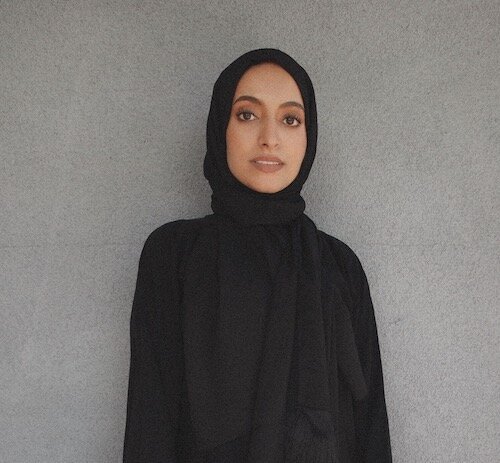My Yemen: A Diaspora’s Perspective
Our new series Her Story puts the spotlight on marginalized voices in the Muslim community. The Muslim narrative in North America has been driven by Arab and South Asian voices for far too long. Muslim Women Professionals invites marginalized groups to be a part of the table so we can actively listen and learn from them.
Biography: Born in Yemen, raised in the Central Valley of California, Noor Qwfan works in Corporate Social Responsibility and is the creator of Noors Nook (@noors_nook), an expressive outlet for her creative tendencies. She is also the creator and host of This Muslim Girl Podcast (@thismuslimgirlpodcast), a platform started in 2017 to amplify the voices of Muslim women and their experiences.
TO READ MORE ABOUT THE CRISIS IN YEMEN AND TO LEARN HOW YOU CAN HELP, PLEASE VISIT HTTPS://YEMENCRISIS.CARRD.CO
June 26, 2020
Playing in the dirt, spending time with my Grandma Noor’s cows and sneaking off to try qat for the first time are some of my fondest memories in Yemen. Growing up we would visit Yemen often as it was important to my parents that we studied Arabic and immersed ourselves in the culture. The Yemen I knew was still underdeveloped and simple but it was rich with culture and hayah (life). On the surface, someone like me, essentially a visitor, would assume life was great in Yemen. As someone who came from the diaspora to visit, I always anticipated returning back to a developed country where I had more opportunity. I think I was blind to the struggles Yemeni people faced when it came to their future because I never understood the struggles and barriers that were present to most people living in Yemen. During my visits, Ali Abdullah Saleh was still president. In 2011 the Arab Spring happened and he was ousted in 2012. This resulted in political unrest and more divide including the rise of the Houthi rebel group who took over and a civil war broke out.
A common misconception is that the war is between Yemen and the Saudi led coalition, but it is important to understand the actual war paradigm that started in 2015. It is a proxy war in which two outside powers are supporting the power struggle between two groups (Iran & the Houthi rebel group and KSA & the Yemeni government). Many argue that the involvement from both Saudi Arabia and Iran is one of interest because each country benefits in many ways by supporting the control of one political entity over the other. But ultimately what has resulted from this war is devastation and the world's worst humanitarian crisis. Due to blockades of goods and aid, bombings and shellings, 24 million Yemenis are in need of aid, with 1.2 million facing food insecurity (source: OCHA). The country is also devastated with disease, such as cholera which has impacted over 1.4 million people, medical supply scarcity and the recent threat of COVID 19.
It is extremely difficult to observe from afar the struggles and changes my family in Yemen and the entire Yemeni population has had to endure with little to no help from the world. Even in unique times like this pandemic and the civil unrest here in the US, I know it is nothing compared to living in a country where you are in unsafe and unsanitary conditions, where the sound of bombs keep you up at night and where you don't know when your families next meal will be.

